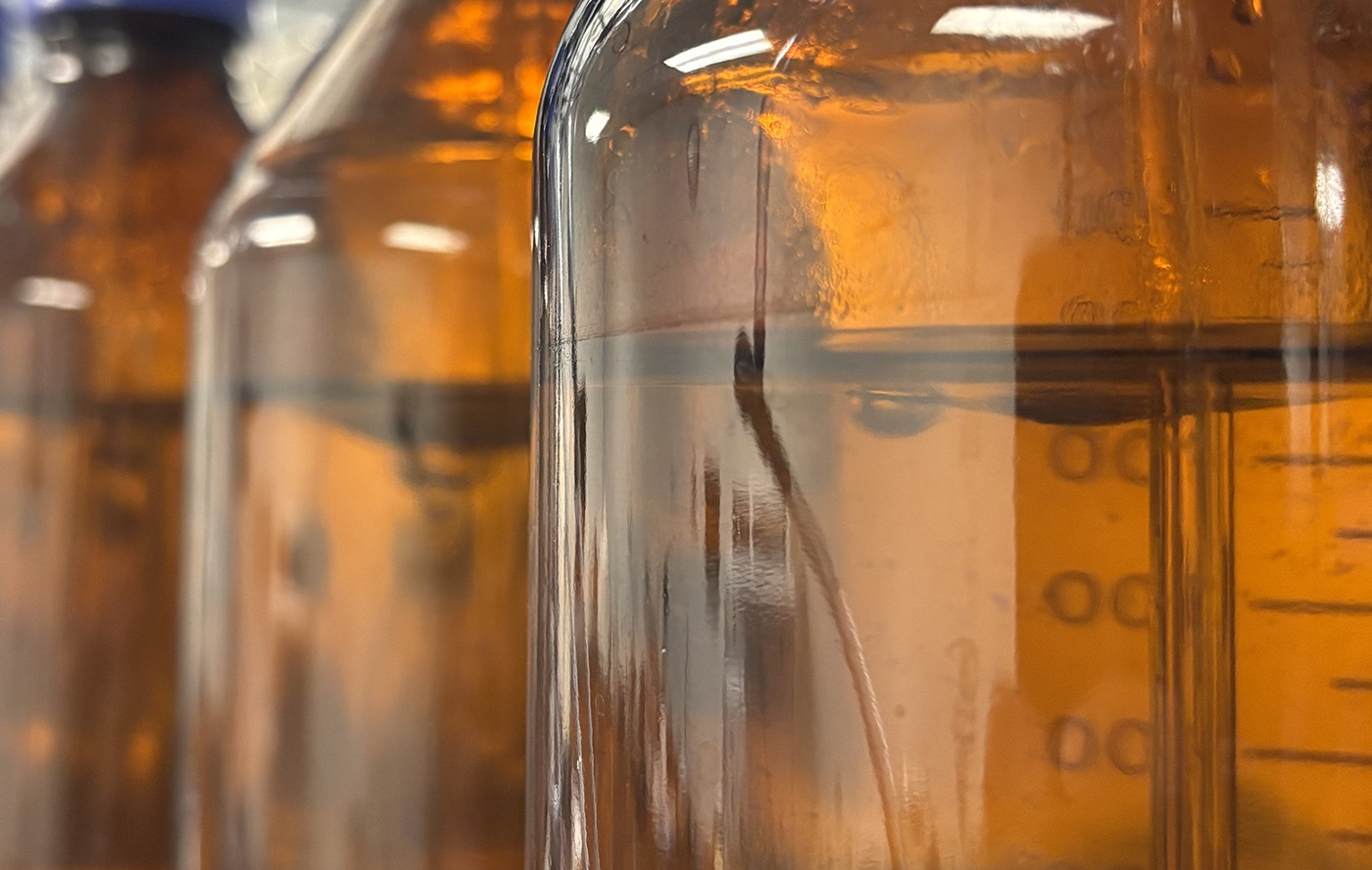Summary
ISO 14852 is a test that determines the ultimate biodegradability of plastic materials in an aerobic, aqueous medium. This test measures the CO2 evolution during biodegradation in continuously aerated bottles. This test can last up to six months based on the needs of your products.
ISO 14852 Testing Method
ISO 14852 determines the biodegradability of a plastic material by measuring the CO2 evolution during the biodegradation process over six months. As biodegradation takes place, CO2 and H2O are formed, and the CO2 production is measured at the end of the test. The measured CO2 is compared to the theoretical CO2 to easily calculate the degradation percentages over the six months.
This test is appropriate for highly soluble, poorly soluble, insoluble, and/or absorbing materials. Natural and/or synthetic polymers, copolymers, and mixtures can be tested using this method, along with plastic materials that contain additives such as plasticizers, colorants, and other compounds.
Information on the toxicity of the test substance is helpful in determining the appropriate dosage so that the material does not inhibit bacteria at the concentration tested.
Here are some additional details on the ISO 14852 test method:
- Materials that can be tested:
- Natural and/or synthetic polymers, copolymers or mixtures thereof
- Plastic materials which contain additives such as plasticizers, colorants or other compounds
- Water-soluble polymers
- Materials that do no inhibit the microorganisms present in the inoculum under the test conditions
- Test substance requirements:
- Carbon content is required in order to calculate the ThCO2
- Powder form is preferable with a maximum particle size of 250um in diameter
- Similar shapes of different substances should be used if they are to be compared
- Plastic materials without additives are preferable
- Measurement: CO2 evolution
- Temperature: 20-25°C
- Reference: A well-defined biodegradable polymer (e.g. microcrystalline cellulose powder, ashless cellulose filters or poly-β-hydroxybutyrate)
- Test substance dosage: Normally at least 30mg/L of organic carbon, preferably 100mg/L
- High mineral medium concentration should be used if the test substance dosage is high
- Inoculum: Activated sludge, preferably used on the same day as collection or within 72 hours
- Pre-exposed inoculum is generally not used, but could also be used depending on the purpose of the test
- Inoculum dosage: 30-1,000mg/L of total suspended solids
- Number of reactors: 3 for blank control, 3 for reference control, and 3 for test substance
- Duration: Normally up to 6 months
- Upon termination, pH is measured and reactors are acidified in order to measure any of the carbonates and bicarbonates
When You Need ISO 14852 Testing, Turn to Aropha
At Aropha, we strive to provide our customers with streamlined, efficient biodegradability testing. From lubricants to plastics to personal care products, our team has tested a wide range of products and materials for biodegradability, compostability, and ecotoxicity. With our combination of digital twin simulation platform and lab biodegradability testing, we can provide cost-efficient accurate results no matter what stage you are at in product development.
ISO 14852 Requirement and Applicability
Different testing methods are applicable for materials with different properties. Below is a summary of the applicability of ISO 14852. Please check our Method Selection Guide to select the most appropriate method for your materials. You can also find the applicability for many other methods in our Resource Center.| Test | Analytical method | Sample info required * | Poorly soluble | Volatile | Adsorbing |
|---|---|---|---|---|---|
| ISO 14852 | CO2 evolution | Organic carbon content * | + | - | + |
*“Sample info required” is the information needed to calculate the biodegradation percentages. This must be available for a selected method.
*“Organic carbon content” is the ratio of the organic carbon weight to the weight of the sample. It can be calculated by the sample formula (e.g., acetic acid C2H4O2, carbon content is 12*2/(12*2+1*4+16*2)=40%). Try our Online C% Calculator. If the formula is unknown, we can send the sample out to a third party lab for you for analysis (normally $110 with a 10-day turnaround time).
Pricing
$1499/sample for High-Throughput Screening$2799/sample for Biodegradability Certification

